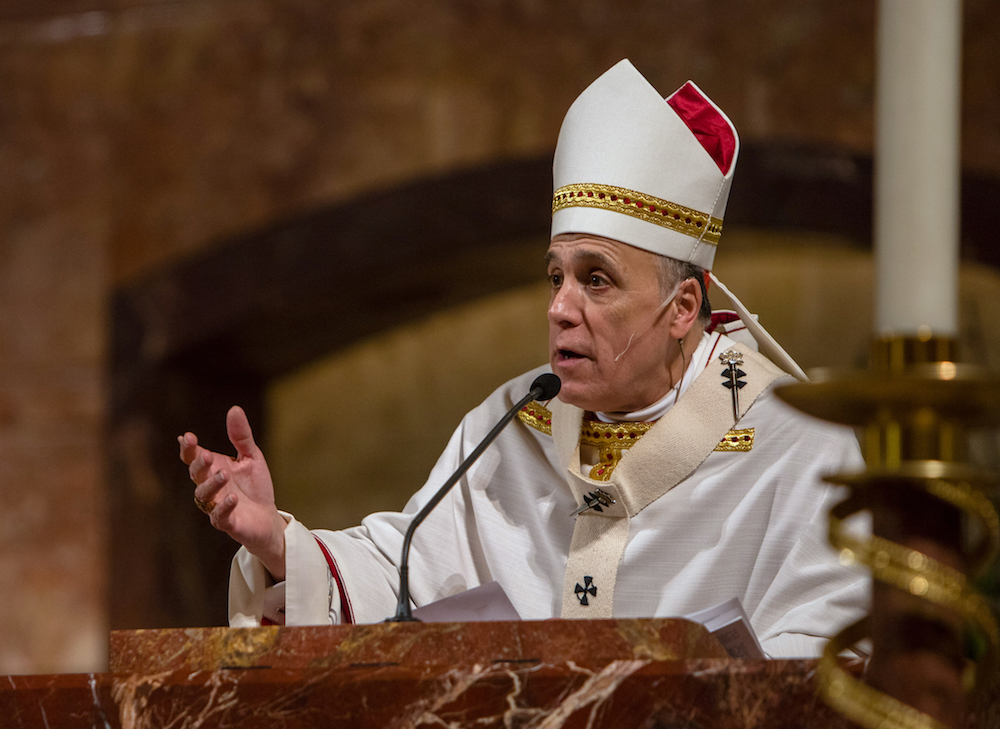“How are people supposed to defend the Church now? How can people even hold up their heads and say they’re Catholics?”
Someone I know well said that just the other day. She was speaking in the wake of the scandal surrounding Archbishop Theodore McCarrick, plus the grand jury report that 300 priests in six Pennsylvania dioceses had abused children over the last 70 years.
I agree. Horrors like those don’t make being a Catholic any easier. But there are a few bright spots in this picture just the same.
One is that — finally — the Church took the lead in making the bad news public in the McCarrick case. Cardinal Timothy Dolan and the Archdiocese of New York announced in June that a Church inquiry had found a recent accusation that the then-Monsignor McCarrick engaged in sexual harassment of a teenage seminarian half a century ago to be credible.
To be sure, in making this announcement Cardinal Dolan was only doing what he was obliged to do under the terms of the American bishops’ procedures for handling cases of clergy sex abuse. This doesn’t make the abuse involved any less ugly, but at least the system worked.
I suspect, too, that something similar will emerge from close examination of the Pennsylvania grand jury report. Almost certainly there was a cover-up of clergy abuse in the six dioceses prior to 2002. But 2002 was the year that the bishops, prodded by the shocking revelations in the Boston Globe, adopted their tough new policy on abuse. Since then American dioceses, with few exceptions, have practiced public accountability and the number of new abuse cases has fallen dramatically.
It’s encouraging that bishops who’ve spoken up about the latest revelations appear genuinely shocked and angry. That holds for Cardinal Daniel DiNardo, president of the U.S. Conference of Catholic Bishops, who sounded truly irate in his statement declaring that USCCB would do everything it could to dig out the facts in the McCarrick case. “One way or the other, we are determined to find the truth in this matter,” he said.
And it’s also encouraging that a number of bishops have called for a new panel or board to investigate not only the McCarrick case but any future allegations of sexual misconduct by bishops. Some such body is undoubtedly needed now — not least, as part of the effort to reestablish the credibility of the bishops in light of all that’s happened.
As that suggests, though, it would be a serious mistake to limit membership on this new body to bishops. Membership by priests, religious, and lay people is essential. A bishops-only approach would reflect the clericalist style that was apparently operative in Archbishop McCarrick’s rise to the topmost levels of the hierarchy despite the rumors and allegations concerning him.
It would also be a mistake to limit the scope of the panel’s deliberations to the McCarrick case. The present crisis points to a need for sweeping reforms — including giving the laity a meaningful role in the process by which bishops are appointed and promoted — and USCCB needs to address these matters as well.
The whole Church, lay members included, has suffered grievous injury, trust in the hierarchy is badly shaken, and it’s going to take more than the clericalist paternalism of the past to set things right with an understandably outraged laity. If that lesson, sounding a death knell for clericalism, finally sinks in on Church leaders, it will be the brightest bright spot of all in this season of scandals.
Start your day with Always Forward, our award-winning e-newsletter. Get this smart, handpicked selection of the day’s top news, analysis and opinion, delivered to your inbox. Sign up absolutely free today!

